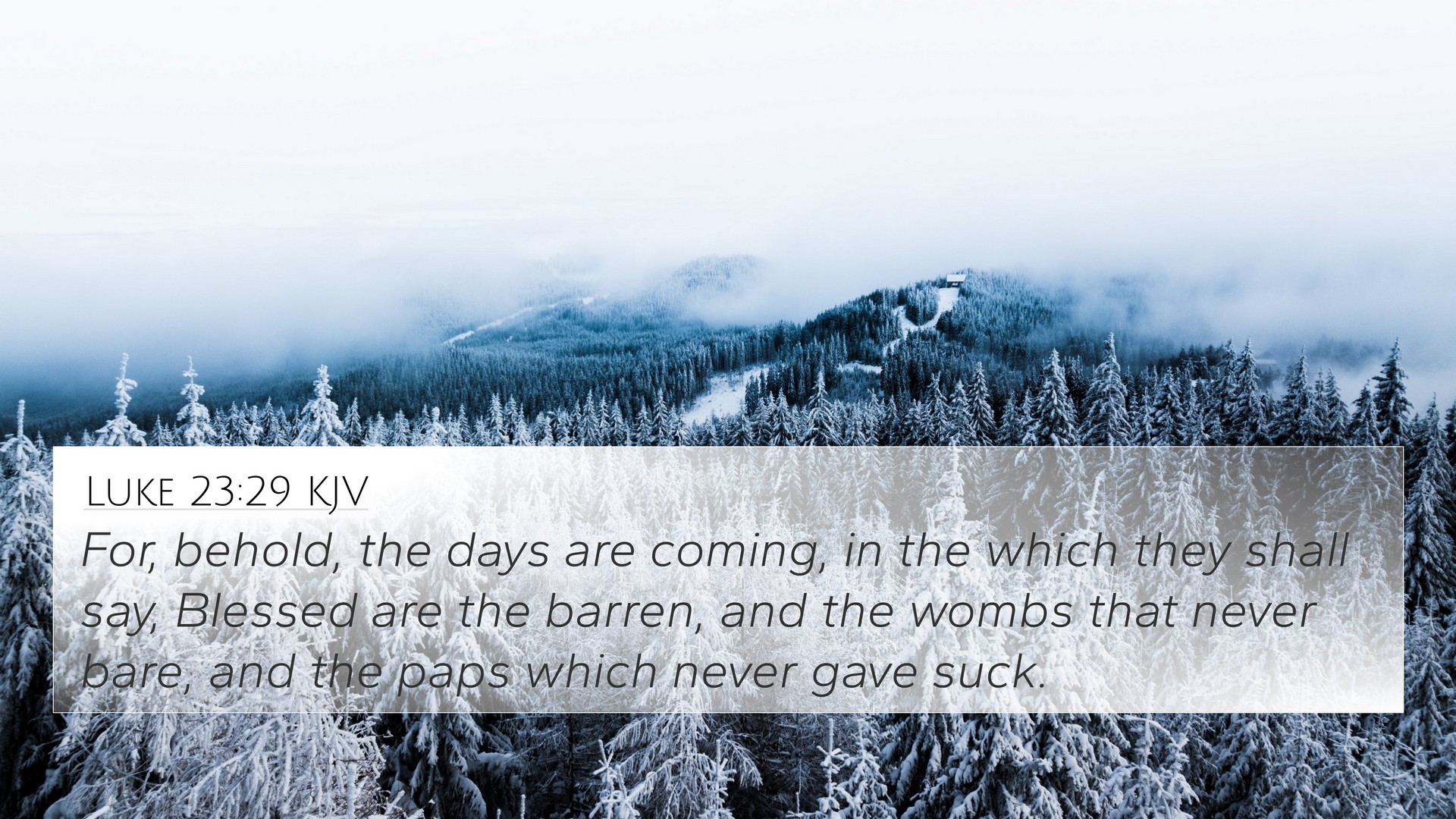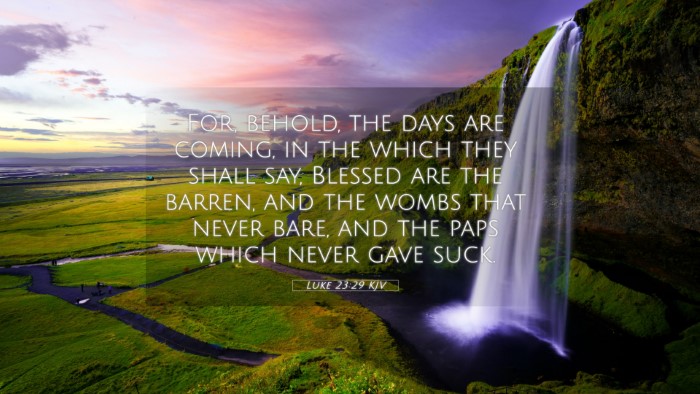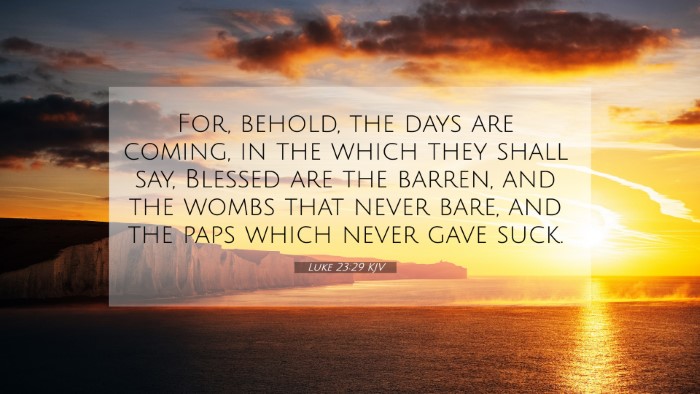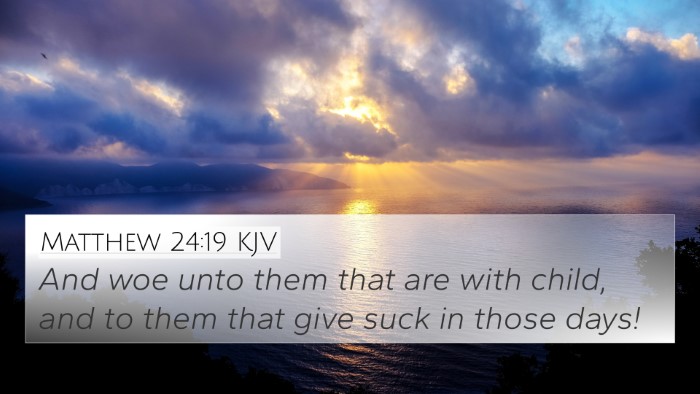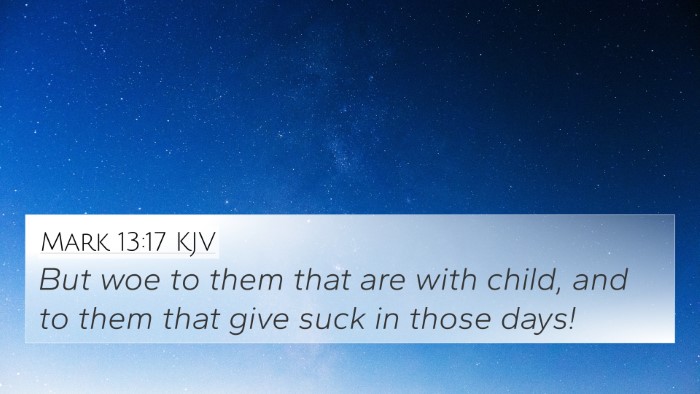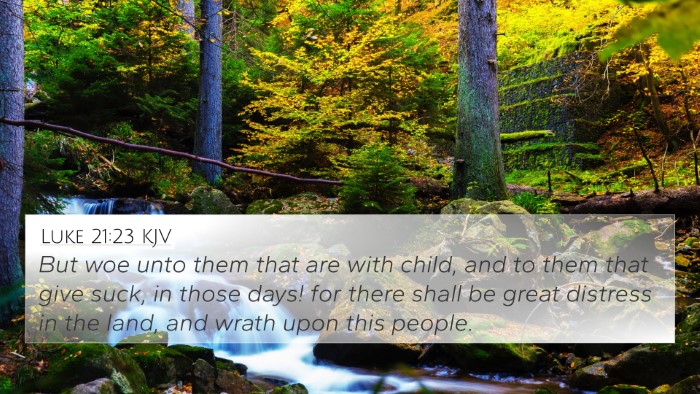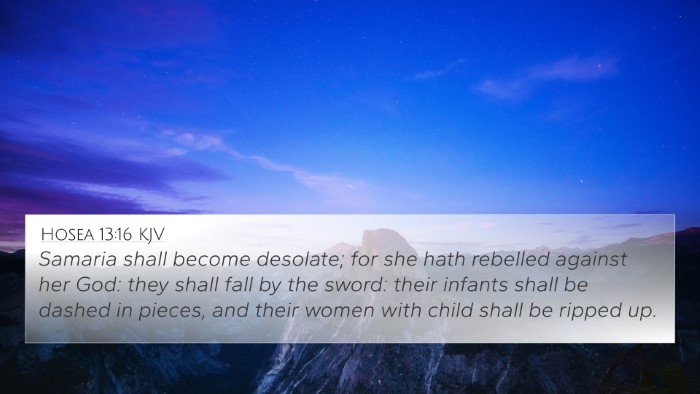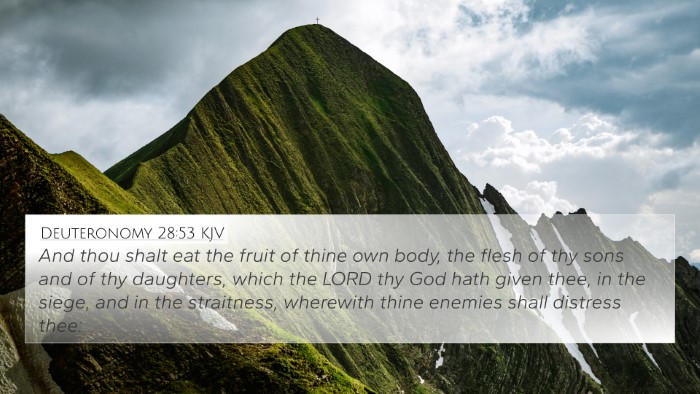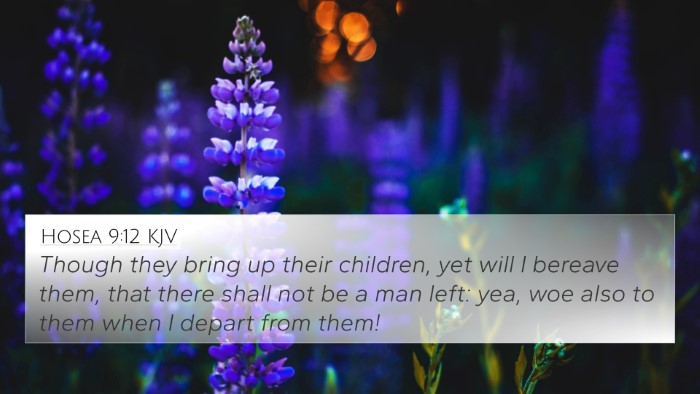Understanding Luke 23:29
Verse Context:
Luke 23:29 states: "For behold, the days are coming when they will say, 'Blessed are the barren, and the wombs that never bore, and the breasts that never nursed!'" This verse is part of the narrative during Jesus’ journey to the crucifixion, highlighting the sorrow and impending judgment upon those who would lament the destruction of Jerusalem.
Summary of Insights from Public Domain Commentaries
- Matthew Henry:
Matthew Henry explains that Jesus is prophesying the coming destruction of Jerusalem and the deep sorrow it will bring. This sorrow is so intense that women who are typically celebrated for motherhood will instead be pitied, illustrating a profound societal despair.
- Albert Barnes:
Albert Barnes emphasizes that this statement can be understood as illustrating the extreme suffering that those in Jerusalem will endure. The reference to barren women serves as a metaphor for the tragedy that will envelop the city, leading to such longing and despair that childbearing will be seen as a curse rather than a blessing.
- Adam Clarke:
Adam Clarke interprets this verse as a warning to those who do not heed the signs of impending judgment. The phrase reflects a cultural reality where motherhood is revered, yet, in times of calamity, women will find themselves wishing they had never borne children due to the horrors that await.
Key Themes and Connections
This verse from Luke draws upon a deeper thematic understanding of judgment, despair, and prophetic warning. The idea expressed resonates with various other biblical sentiments regarding the consequences of sin and the heartfelt lamentations of loss.
Bible Verse Cross-References
- Matthew 24:19: "But woe to those who are pregnant and to those who are nursing babies in those days!" - A parallel echoing the lament for mothers during times of tribulation.
- Luke 21:23: "But woe to those who are pregnant and to those who are nursing babies in those days!" - Further emphasis on the plight of those with young children during destruction.
- Jeremiah 16:2-3: "You shall not take a wife, nor shall you have sons or daughters in this place." - Illustrates a similar theme of impending doom where normal life processes are disrupted.
- Hosea 9:11: "As for Ephraim, their glory shall fly away like a bird—no birth, no pregnancy, and no conception." - A prophetic warning concerning the futility of hope during judgment.
- Isaiah 54:1: "Sing, O barren, you who have not borne! Break forth into singing, and cry aloud, you who have not labored with child!" - Contrasting barrenness as a reason for joy in a different prophetic context.
- Revelation 18:4: "And I heard another voice from heaven saying, 'Come out of her, my people, lest you share in her sins, and lest you receive of her plagues.'" - Another warning about the fate of the unrepentant similar to the lamentation in Luke.
- Lamentations 4:10: "The hands of the compassionate women have cooked their own children; they became their food in the destruction of the daughter of my people." - A sentiment reflecting despair that resonates closely during calamity.
Thematic Bible Verse Connections
When studying this verse, we discover a profound interplay of themes:
- Judgment and Consequence: The verses illustrate how sin leads to severe consequences.
- Tragedy of Innocence: Reflects the suffering of the innocent, particularly mothers and children, during societal upheaval.
- Prophetic Forewarning: Jesus’ warnings throughout the Gospels serve to prepare His followers for the inevitable trials ahead.
Tools for Bible Cross-Referencing
For those seeking deeper understanding, various tools facilitate cross-referencing different passages:
- Bible Concordance: A comprehensive listing of words alongside their scripture references helps in exploring specific themes.
- Bible Cross-Reference Guide: These guides offer direct connections between verses for comparative studies.
- Bible Reference Resources: A plethora of biblical resources provide context, history, and interpretation to verses.
Conclusion
Luke 23:29 serves as a stark reminder of the realities of judgment and the emotional responses it evokes. It highlights how biblical themes interconnect across scripture, engaging readers in a rich tapestry of meaning that reflects both dire warnings and profound truths about human experience, suffering, and the grace of understanding through inter-Biblical dialogue.
